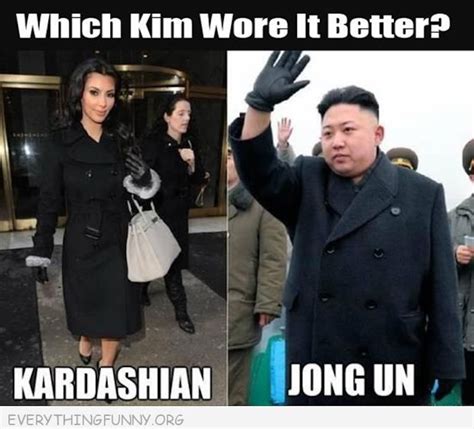The enigmatic leader of North Korea, Kim Jong Un, has been a subject of fascination and scrutiny for years. While his regime’s actions and policies have been widely criticized, there’s an odd juxtaposition when considering the humor surrounding his public persona. The humor isn’t about the man himself but rather the absurdity and surreal nature of the situations he finds himself in, coupled with the outside world’s perceptions and depictions of him. Let’s dissect what makes Kim Jong Un a figure of dark humor and satire, exploring the psychological, social, and cultural factors at play.
The Absurdity of Propaganda
One of the primary sources of humor is the stark contrast between the seriousness with which Kim Jong Un and his regime take themselves and the apparent absurdity of their actions and claims to outside observers. The tightly controlled media in North Korea often releases statements and visuals that, when viewed through the lens of Western satire, seem comically exaggerated. For example, the claims of his superhuman abilities, the depiction of him as a beloved and benevolent leader, and the grandiose military parades all contribute to a narrative that feels like a caricature to many outside North Korea.
International Perceptions and Media Portrayal
The way Kim Jong Un is portrayed in international media also plays a significant role. Cartoons, memes, and comedies often depict him in an exaggerated manner, emphasizing his physical appearance, his haircut, and the perceived ridiculousness of his public appearances. These portrayals, while not necessarily respectful, contribute to a collective humor that distances him from the more sinister aspects of his rule. The media’s focus on the more bizarre aspects of North Korean culture and politics under his leadership creates a narrative that, while not funny in itself, becomes comedic through the lens of cultural and political differences.
The Psychology of Laughter
Laughter, in this context, serves as a coping mechanism. It’s a way for people to deal with the discomfort and uncertainty that comes with living in a world where figures like Kim Jong Un hold significant power. By making light of his image and the situations surrounding him, people can momentarily escape the anxiety associated with geopolitical tensions. This laughter is not necessarily at Kim Jong Un’s expense but is rather a reaction to the surreal nature of global politics. It’s a form of gallows humor, where the absurdity of a situation is highlighted to underscore its ridiculousness and, momentarily, to diminish its threat.
Satire as Critique
Satire and dark humor directed at Kim Jong Un also serve as a form of critique. By exaggerating and ridiculing certain aspects of his regime and public image, satirists can highlight the more problematic elements of his rule, such as human rights abuses and the draconian control over North Korean society. This form of humor acts as social commentary, using irony and absurdity to critique aspects of politics and society that are otherwise difficult to confront directly.
The Role of Cultural Differences
Cultural differences play a significant role in what is considered funny. The humor surrounding Kim Jong Un is largely a product of Western perspectives and the cultural context of freedom of speech and satire. In North Korea, such humor would not only be unseen but would also be dangerous, as any form of criticism towards the leader is met with severe punishment. This contrast between how Kim Jong Un is viewed internally within North Korea and externally highlights the complex interplay of culture, politics, and humor.
Conclusion
The humor associated with Kim Jong Un is complex and multifaceted, stemming from the absurdity of propaganda, international perceptions, psychological coping mechanisms, satirical critique, and cultural differences. While the regime itself is not a laughing matter, the ways in which it presents itself to the world, combined with external views and portrayals, create a surreal landscape that invites dark humor and satire. Understanding this humor requires acknowledging the nuanced interplay between political critique, cultural context, and the human tendency to find relief in laughter, even in the face of adversity.
Understanding the Humor
The humor surrounding Kim Jong Un is not about mocking the individual but rather about coping with the surreal nature of global politics and critiquing authoritarian regimes through satire and absurdity.
Why is humor used to cope with political figures like Kim Jong Un?
+Humor serves as a coping mechanism, allowing people to momentarily escape the anxiety and discomfort associated with geopolitical tensions and the actions of authoritarian leaders.
How does satire contribute to the discourse around Kim Jong Un?
+Satire acts as a form of social commentary, using irony and absurdity to critique problematic aspects of Kim Jong Un’s rule, such as human rights abuses and societal control, in a way that is both engaging and thought-provoking.
What role do cultural differences play in the perception of humor regarding Kim Jong Un?
+Cultural differences significantly impact what is considered humorous. The humor surrounding Kim Jong Un is largely a product of Western perspectives, emphasizing the importance of understanding cultural context when interpreting satire and political humor.



